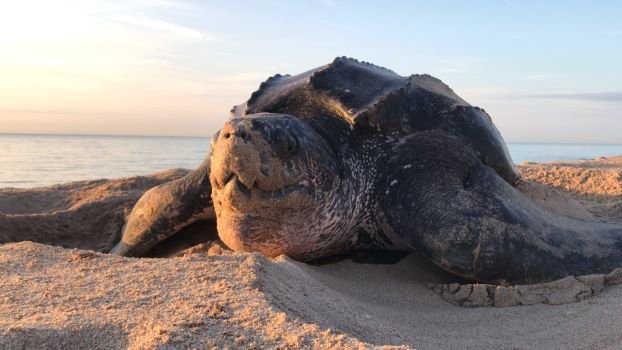
Positive ocean news: July edition
A round-up of positive news stories from July to celebrate the wins for our seas, including an ocean clean-up, a freed seal, and a conservation project in Puerto Rico.
Clean-up company removes over 13 million kgs of waste from ocean

Credit: Naja Bertolt Jensen
4ocean has reached a milestone, and set a record, of collecting 30 million pounds (over 13 million kgs) of waste from the ocean, rivers and coastlines. The company sells bracelets made using plastic recovered from its clean-ups.
Although plastic pollution is a global issue, Alex Schulze, CEO and co-founder of 4ocean, acknowledges that it disproportionately impacts certain countries and communities. For this reason, 4ocean operates in countries which are directly impacted by pollution. “All of our captains and crews live in the communities we serve and are hired as full-time employees”, says Schulze.
Read more on the Good News Network website
Two new deep-sea octopus nurseries discovered

Credit: Schmidt Ocean Institute
Scientists exploring seamounts off Costa Rica discovered two new deep-sea octopus nurseries, bringing the total of the world’s known octopus nurseries to three.
Brooding octopuses were found at one of the sites which was previously visited in 2013, but no babies were. However, the scientists did see babies on their return to the site ten years later.
Several days later, another nursery was discovered 30 miles away.
Both nurseries were found on low-temperate hydrothermal vents, leading scientists to believe that the brooding octopus may be attracted to the warmth, the rocks nearby or perhaps a microbe in the water.
The species discovered on the vents may be a previously undocumented species of deep-sea octopus, adding further excitement to the discovery.
Read more on the Mongabay website
Seal with frisbee caught around its neck freed in Cornwall
After an attempt to pull the frisbee off by hand, animal care experts were called in, bringing with them specialist equipment.
After the ring was cut off her neck, the seal was quickly returned to sea. As the seal is regularly seen in the area, where she is fed by fishing boats, it’s believed she is more used to and comfortable around humans, which helped in the rescue operation.
Read more on the British Divers Marine Life Rescue website
Teams join forces to protect and conserve leatherback turtles

Credit: Catalinaug/Shutterstock
Luis Crespo, who founded the marine turtle conservation nonprofit Amigos de las Tortugas Marinas (ATMAR), has teamed up with Kara Dodge, a research scientist who had previously tagged and tracked leatherbacks, to protect and conserve leatherback habitats in Maunabo, Puerto Rico.
Using drones and satellite tags, Luis and Kara’s teams will work together to track leatherbacks to identify their nesting habitats and gain insight into their migration patterns.
Leatherback turtles, the world’s largest marine turtle species, are at risk from poaching, accidental capture in fishing and the loss of their nesting grounds, resulting in the species being classified as ‘vulnerable’ on the IUCN Red List.
There is currently a lack of monitoring data on the species in Puerto Rico, meaning that there are no legal protections for their habitats in the region. Luis and Kara’s team is hoping to help change this through the project, which has secured funding to continue, and hopefully expand, for three more years.
Read more on the Mongabay website
Australia’s humpback whale population increases by 57%
Australia's humpbacks almost became extinct following 30 years of illegal whaling by the USSR, taking almost 30,000 whales from the Antarctic.
But now, following bans on whaling in the country, humpback whales are recovering well and have been removed from Australia's threatened species list.
Professor Mike Noad, director of the Centre for Marine Science at the University of Queensland, said, "We think we have more whales in the population than we did pre-whaling," and is expecting 40,000 humpbacks to pass Eastern Australia this season.
Read more on the ABC News website



